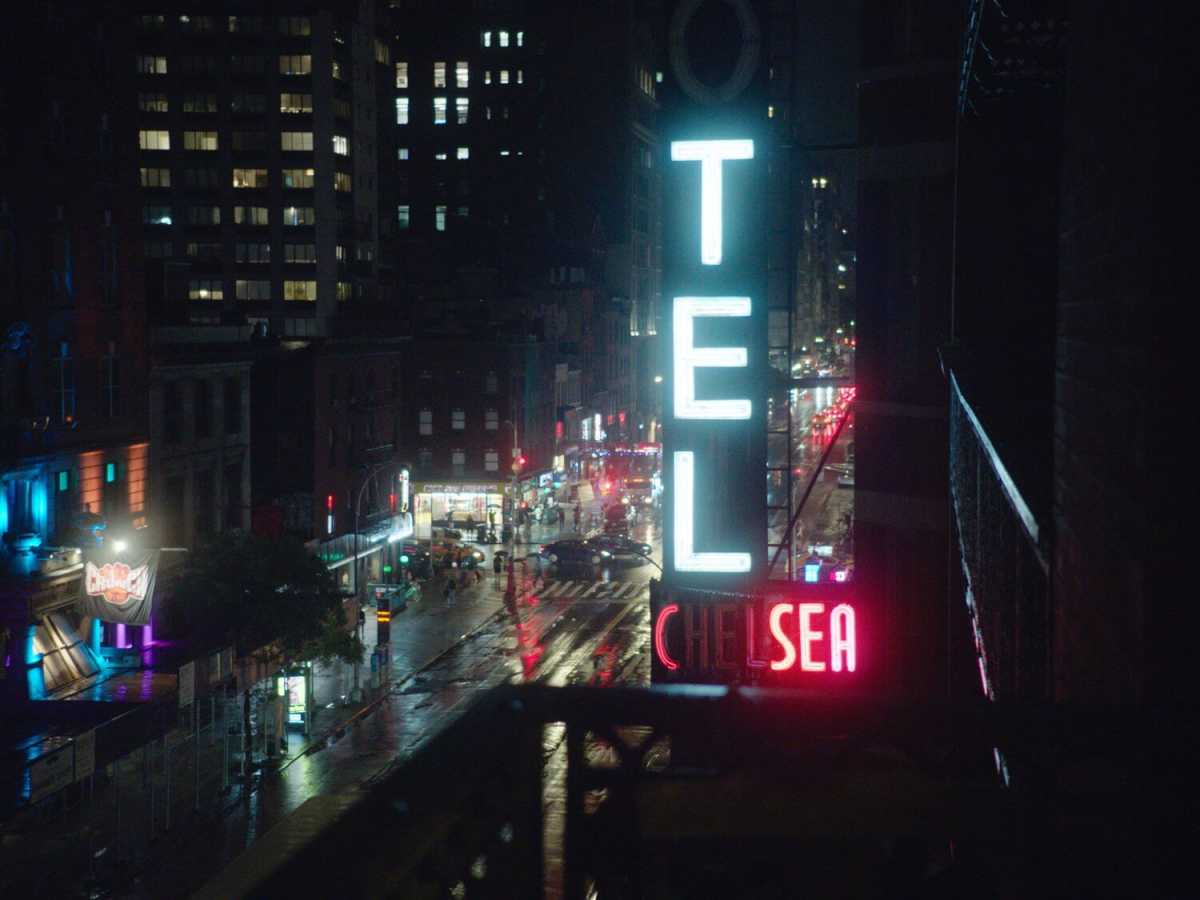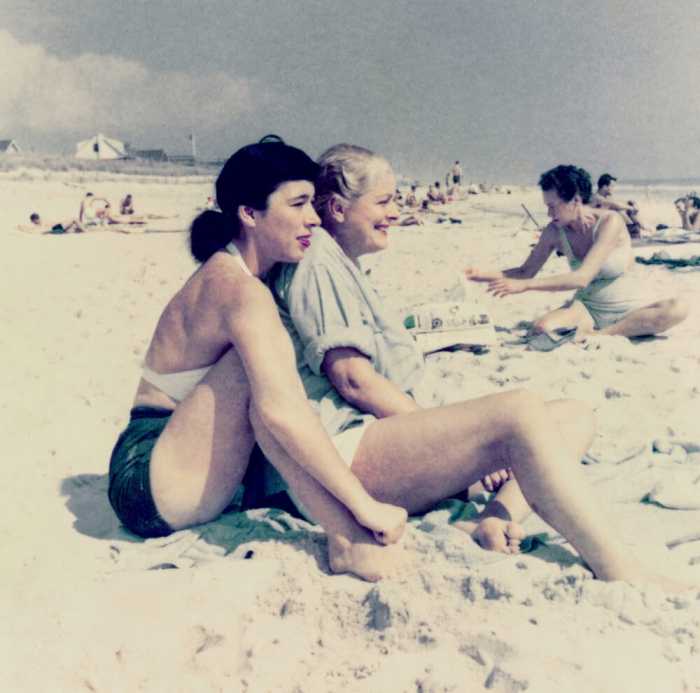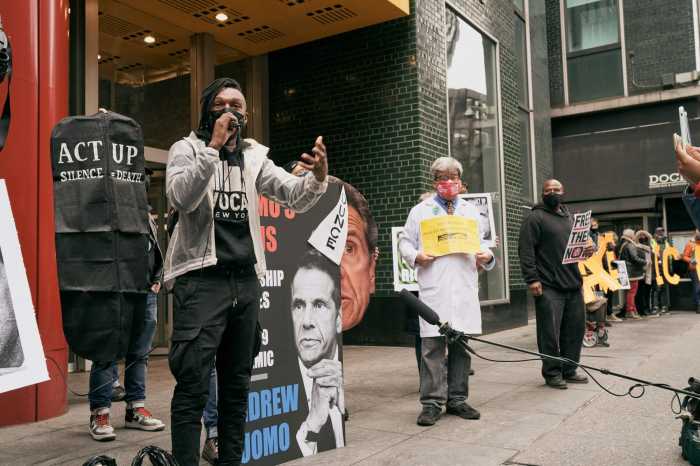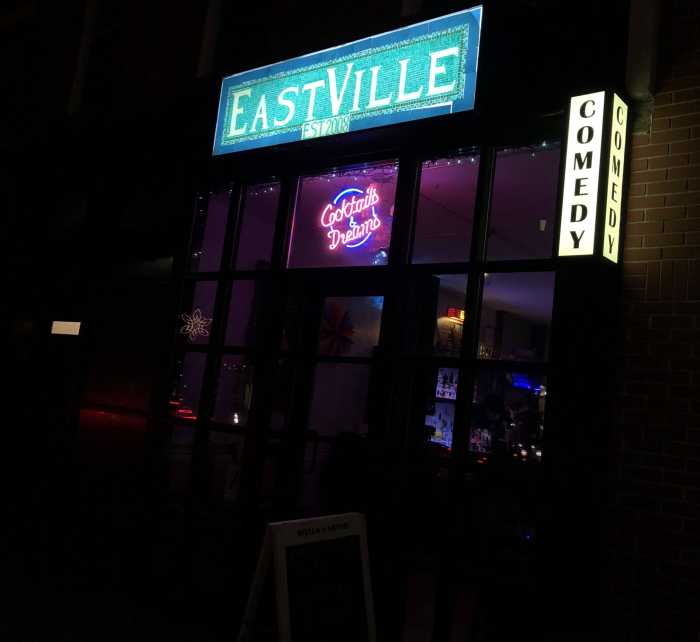The Chelsea Hotel, at 222 West 23rd Street, has long been a symbol of bohemian New York. The elegiac documentary, “Dreaming Walls,” focuses only briefly on the legends — e.g., Oscar Wilde staying there, Andy Warhol shooting his classic film, “Chelsea Girls,” in one of the rooms, and Allen Ginsberg chanting “Holy, Holy, Holy.”
Directors Amélie van Elmbt and Maya Duverdier concentrate mainly on a handful of current residents who are enduring a renovation project that started a decade ago and is still ongoing. The building is being turned into a fancy hotel — not the “cheap rooms and fun people” that made the hotel’s reputation in its heyday.
Throughout the documentary, the camera floats through the hallways and sits in various apartments of this celebrated, immortalized space. The filmmakers interview and observe various tenants about their residence. One of those denizens is Steve Willis, an out gay TV director. He spoke with Gay City News about his apartment and making “Dreaming Walls.”
What made you decide to participate in this film and tell your story?
I typically wouldn’t. Living here since 1994, I’ve not agreed to participate in the Chelsea projects; there always seems to be something. I definitely give credit to the filmmakers; I could see us being friends. I immediately trusted them. They were already in with Merle [another resident], so that was a good sign.
Can you recount how making a Mariah Carey video in the hotel helped you secure an apartment?
That was a producing job back in 1994, because I switched to being a director. I wasn’t familiar with the hotel before that. I, of course, fell in love with it immediately. I was dealing with the owner, Stanley Bard, and he felt I like knew famous people and I could bring people to the hotel, even though it was the director’s/Mariah Carey’s choice for the location. He offered me a room. I was specific; I wanted a balcony and a fireplace and more original features and landed on this one [I live in]. I learned it was Janis Joplin’s apartment 15 years in, which was exciting. She’s one of the alumni I like the most.
I liked your musings about Janis Joplin using your soap dish (or perhaps not) and your toothbrush holder. What are your thoughts on the history of the hotel?
I think it’s really cool. I worked with Patti Smith on the doc, “Dream of Life.” She told me she was in Janis Joplin’s apartment when Kris Kristofferson sang Bobby McGee to Janis for the first time. I love to be in this apartment and think about that moment. How amazing for Patti Smith to witness that, and what a threesome — hey, here’s this song I wrote and think you should record.
Can you talk about the caché of living in the Chelsea?
All of New York has changed so much since I first moved in. In 1994 it was a no man’s land. There was bulletproof glass and you had to be buzzed in and it had a very different vibe. There were homeless people in the lobby. It was dangerous and wasn’t populated. Then it turned gay. Now I don’t know what it is. And then the pandemic changed everything. It will change a lot when the hotel opens back up. The building must have a huge economic impact for the businesses on this block.
The documentary shows how your space has been downsized from a one bedroom to a studio. How did that come about?
It’s been a trauma I’ve had to process and continue to process. I am happy with what I have left, and I am grateful to still be here. I wanted to fight, but the length of time was wearing me down. There was the potential of losing it altogether — it was slim, and my lawyer said I would win — but it was still an ongoing legal battle, and they were trying everything. Different owners were more aggressive than others. They would throw something at you just to see if you can get a lawyer and fight. I got worn out, and they needed as much space as possible. There was a way my apartment could be split up very easily where I’d keep the balcony and the nice parts, and I’d be locked in for life. I would just have a really beautiful hotel room than a 1-room apartment.
You are also very passionate about preservation.
It’s sad. On the preservation level I wanted to save the apartment as it was. But what if I lost it? I wouldn’t know what I would do. The idea of fighting for however many years…it really can get to you. It is stressful trying to learn rules of this very complicated game. Luckily, my lawyer is a hero and he saved me and a lot of people in this building. He made it affordable for me. He didn’t want me to give up my [space]. I have to get off the merry-go-round. I am happy with what I have left.
Are you friendly with the other residents? Is there a sense of camaraderie or are folks mostly isolated strangers as one interviewee suggests?
[Laughs]. Before all the shit started happening, my attitude was you come in and out of your apartment and live your life. But I felt what happened brought people together. The first residents’ meeting on the roof was great. I left feeling a lot of respect for people. Unfortunately, it all spiraled into different factions — some of that resident in-fighting is in the movie. I didn’t get into any of that.
What do you think will happen with the hotel when the renovations are completed?
It will be an interesting experiment. A lot of people think the old character will still be strong and sway what people come here, and what happens here. Other people think it’s going to be a fancy hotel that barely references its past. I think slowly the residents will disappear. Three people in the film have died already.
“Dreaming Walls: Inside the Chelsea Hotel” | Directed by Amélie van Elmbt and Maya Duverdier | In theaters and on demand July 8 | Distributed by Magnolia Pictures





































